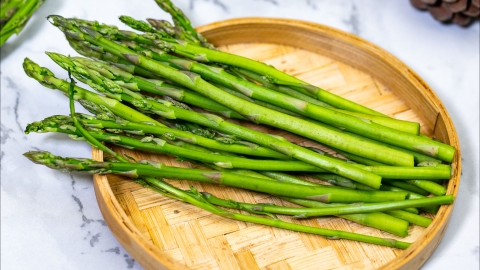Can I eat asparagus after taking traditional Chinese medicine?
Whether one can eat asparagus after taking traditional Chinese medicine (TCM) depends on the type of medicine being used. If the medicine is of a warming and nourishing nature, or used for regulating the spleen and stomach, and there are no specific contraindications, asparagus can be consumed in moderation. However, if the medicine has a cooling effect, is used for clearing heat and relieving fire symptoms, or if it interacts with components in asparagus, eating asparagus is not recommended. Detailed explanations are as follows:

When taking warming and nourishing TCM or medicine for regulating the spleen and stomach, asparagus, which is rich in vitamins, minerals, and dietary fiber, can provide essential nutrients. Its mild nature generally does not cause adverse reactions with this type of medicine. For example, during treatment with Qi-nourishing and blood-toning herbs such as Codonopsis (Dang Shen) and Astragalus (Huang Qi), moderate consumption of asparagus can not only supplement nutrition but also help enhance immunity and promote recovery.
However, for TCM that has a cooling effect to relieve internal heat or purge excessive fire symptoms, asparagus, being a cooling food, may intensify coldness in the body when consumed, potentially affecting the medicine's efficacy and possibly causing discomfort such as diarrhea. If certain components in the herbal medicine interact with substances in asparagus, it may interfere with drug absorption and reduce treatment effectiveness. For example, consuming asparagus while taking heat-clearing herbs like Coptis (Huang Lian) or Rhubarb (Da Huang) may significantly reduce the medicine's effectiveness.
During the course of taking TCM, regardless of whether asparagus can be consumed or not, it is important to carefully read the medical instructions, strictly follow dietary restrictions, and avoid improper eating habits that could interfere with treatment outcomes.









